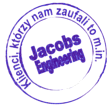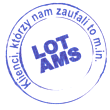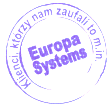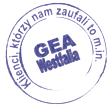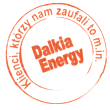Internal auditor course
About the course at ERGON
Join a training course to prepare for a job in technical equipment maintenance. Internal auditor is a profession that has been gaining more and more popularity in the labour market in recent years and the demand for it is constantly increasing, which is associated with good salaries and job stability. On the other hand, on the other hand, it is a profession that has the disadvantage of numerous requirements for constant upgrading of qualifications, mainly due to the volatility of the law and the market in this sector. Internal audit is not an easy, but at the same time extremely important area of operation for any company, especially the larger ones. This is strongly related to the fact that the auditor's task is to analyse and examine the activities of specific organisations in order to facilitate the effective fulfilment of the tasks of the respective establishments. The desire to be an auditor is only half the battle, as in order to fully enjoy the status of this profession, one must demonstrate above-average knowledge and skills. For this reason, all candidates interested in this subject are welcome to attend our training courses for future auditors.
Internal audit profession
The work of the internal auditor is strenuously linked to the constant search for optimal methods of business operations, as well as the need for companies to achieve higher profits. The main function of the audit is to carry out checks on the correct functioning of processes in a selected area of the economy. The task of the person responsible for this takes into account activities ranging from financial audits to the analysis of work organisation and human resource management methods. Depending on the chosen area of activity, the internal auditor can carry out different types of supervision.
In terms of the scope of audit activities, we can distinguish the following categories:
- operational audit - testing the efficiency of the use of the resources concerned;
- IT audit - assessing and analysing the functioning of the information systems used in a given organisation or company;
- compliance audit - compliance with procedures, as well as the comprehensibility of their form;
- financial audit (audit) - an examination of the financial statements prepared by a company in order to verify their accuracy and detect possible misstatements.
The internal auditor's task is to act objectively and independently, with the aim of increasing the wider benefits of the organisation's or company's performance. This process consists of regular reviews, audits and assessments of the various factors that contribute to the end result of an organisation's operation. The auditors provide assistance to the institution in taking its activities in a more effective direction.
What should an auditor excel at?
The desirable qualities of an internal auditor are defined by the ISO 19011 standard, which provides detailed guidance on the character traits most effectively suited to the job.
These personality prerequisites include characteristics such as:
- openness;
- ethics;
- flexibility;
- definitely;
- perseverance;
- ability to apply the principles of effective diplomacy;
- independence.
In addition to personal qualities, aspects such as:
- communicativeness,
- being organised and able to plan working time independently;
- knowledge of random sampling techniques;
- maintaining confidentiality;
- ability to infer, collect, retrieve, compile and verify reliable information;
- ability to prepare clear and concise reports.
Qualifications required for the audit profession
Established in 1941, the IIA (The Institute of Internal Auditors) deals with the association of auditors, the supervision of members of the audit community and the accountability of the qualifications required for the position. The internal audit profession covers both the public and private sectors. The domain of the private sector lacks specific top-down regulations governing the qualifications required for this work and is therefore assumed to be the same as those defined for the public sphere.
The powers required by the Polish Public Finance Act include:
- full capacity in terms of public rights and legal transactions;
- hold citizenship of one of the Member States of the European Union;
- higher education (minimum of Bachelor's degree);
- certificate of no criminal record.
It is also important to have a very good knowledge of the legal regulations in relation to a specific economic field. In addition, the above position requires excellent knowledge and interpretation of ISO standards.
Auditor's specialist qualifications
A candidate who applies for the position of internal auditor should meet at least one of the following conditions.
- Possession of any of the certificates listed below:
- CIA (Certified Internal Auditor);
- CGAP (Certified Government Auditing Professional);
- CISA (Certified Information Systems Auditor);
- ACCA (Association of Chartered Certified Accountants);
- CFE (Certified Fraud Examiner);
- CCSA (Certification in Control Self Assessment);
- CFSA (Certified Financial Services Auditor);
- CFA (Chartered Financial Analyst).
- Certified auditor qualification.
- Passing the examination for internal auditor before an examination board appointed by the hand of the Minister of Finance.
- Postgraduate diploma in internal auditing along with two years of professional practice.
The certificates obtained are of great importance in an international context, as they entitle the holder to work throughout the European Union. However, in order to obtain the relevant certificate, it is necessary to pass an examination and take a course to prepare for it.
Statistical earnings of an internal auditor
A nationwide remuneration survey has shown that the average earnings of an internal auditor are very high in Poland. In addition to sizable sums, laptops and mobile phones are also common perks for those working in this profession.
Pros and cons of working as an auditor
| Advantages | Disadvantages |
|---|---|
| - ability to work independently; - the possibility of working throughout the European Union; - attractive equipment (especially in the private sector); - a high level of attractiveness closely linked to continuous development. | - high stress levels; - negative attitudes of the environment towards the audit profession; - the systematic retraining obligation imposed by the IIA under the sanction of loss of certification. |
Who is the auditor course aimed at?
Our courses are ideal for those interested in the responsibilities and tasks of an internal auditor or those wishing to prepare for such a position in the future. It is worth noting, however, that our training is not only dedicated to future auditors, but also to people working in this profession who wish to improve their existing qualifications. Audit Committee members can also benefit from many of the issues covered in the audit classes, such as organisational culture, process or controlling principles.
Comprehensive training programme
With the support of experienced practitioners, we have developed a comprehensive internal audit training offer. During our auditor course, you will learn, among other things, the role of internal audit in organisations, how to write an audit report, and how to plan and implement audit tasks well. Our main assumption when creating the training programme was to limit theory to the necessary minimum, as we believe that practical skills are the most important issue in the audit profession. We try to teach by examples that will be reflected in future work, putting the emphasis on practice.
Focus on personal development - put your training at ERGON
We are well aware that internal audit is a field that requires complex skills and extensive subject knowledge. It is for this reason that our training centre's staff consists primarily of experts with practical experience, who have been working in the internal audit profession for years or have above-average knowledge in this area. Our trainers focus primarily on imparting knowledge in an accessible and easy-to-understand manner, while emphasising exercises that enhance practical skills. We offer courses from the ground up, as well as refresher workshops that allow you to polish your existing skills in practice.
We look forward to hearing from you!
Questions and answers
What are the eligibility requirements to become an auditor?
The qualifications for internal auditor required by the Polish Public Finance Act include: full legal capacity and public rights, citizenship of one of the European Union Member States, higher education (at least bachelor's degree) and a clean criminal record.
What are the advantages of an auditor's job?
Working as an internal auditor brings with it benefits such as the opportunity to work independently, the possibility to work throughout the European Union, attractive equipment (especially in the private sector) and a high level of attractiveness closely linked to continuous development.



























